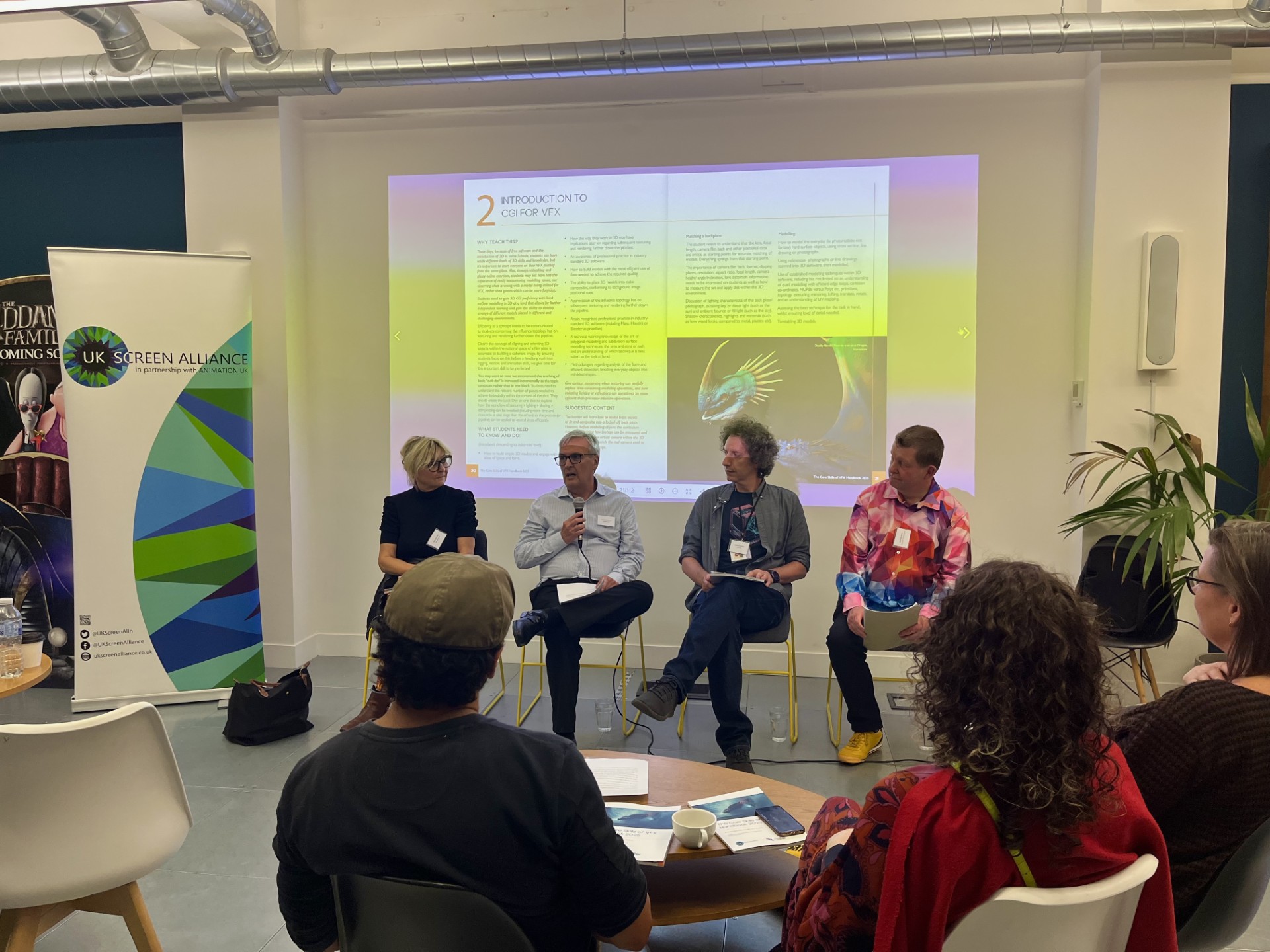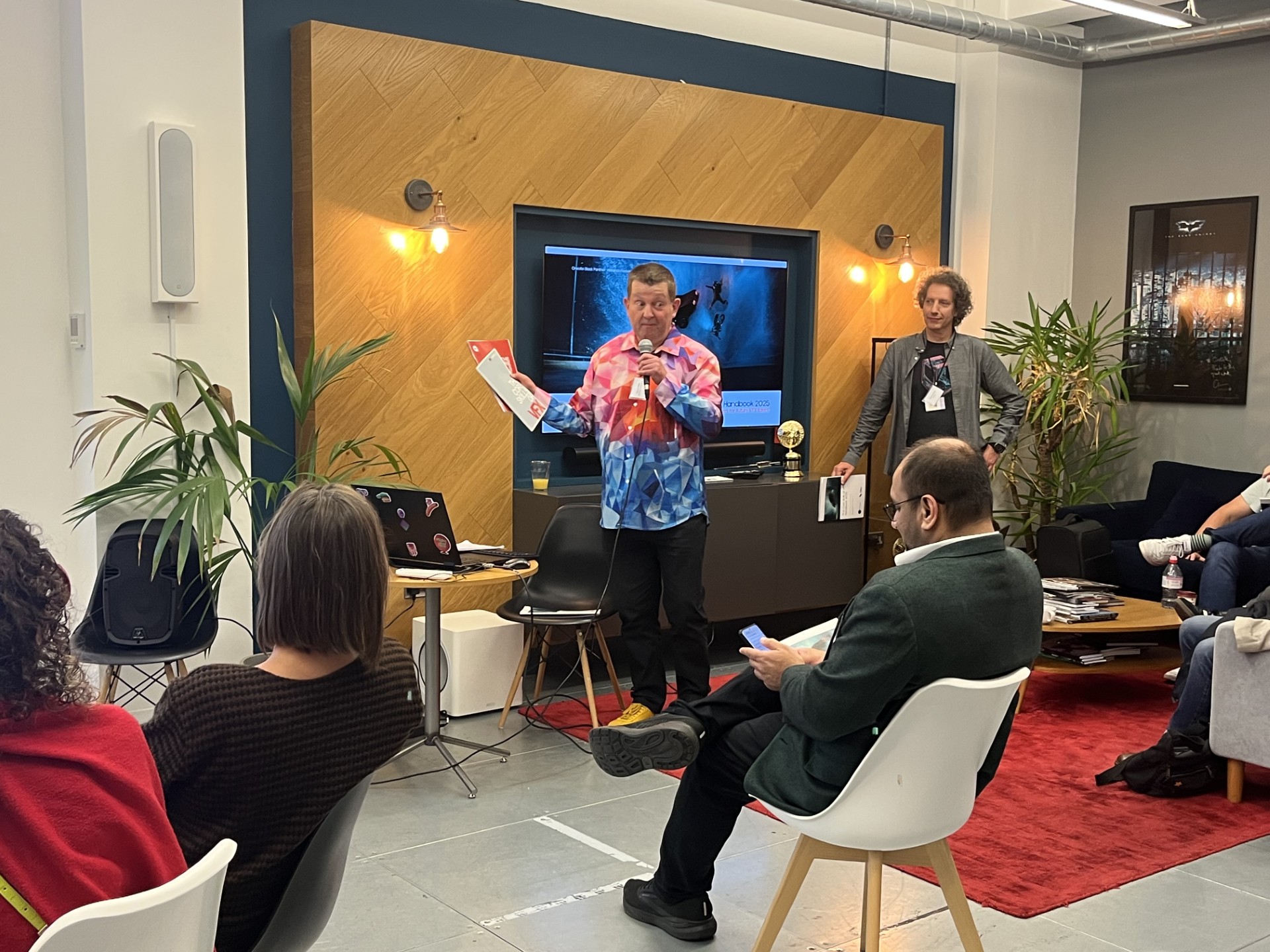The UK’s VFX community gathered at Cinesite’s London offices to mark the launch of the updated Core Skills of VFX Handbook, authored by Saint John Walker and supported by UK Screen Alliance and the Metro London BFI Skills Cluster.

The Core Skills of VFX Handbook, last updated in 2017, has long been a cornerstone for educators and aspiring artists, but the fast pace of technological and cultural change in the sector meant a refresh was urgently needed. This new edition has grown from 70 to 112 pages and has been shaped through a year-long consultation process involving focus groups and over 100 industry contributors.
For the first time, the Handbook includes information on remote working, real-time VFX using games engines, virtual production, and the influence of AI.
The launch event welcomed educators and industry professionals for a premiere look at the publication, with limited printed copies available on the day. Following a welcome from Neil Hatton, CEO of UK Screen Alliance, attendees heard from Saint John Walker about the process of compiling the Handbook, before joining a panel discussion and Q&A exploring the challenges facing graduates, the future of VFX skills, and how the Handbook fits into this climate as an antidote to the current precarity of the industry.
People ask me about the difference between this edition and 2017, and I think since Covid, the industry has been more aware that it is people, not technology, that drives the industry forward. This is indicated by the inclusion of pictures of events and social highlights, and a chapter on People. Like the industry, the Handbook has grown and specialised – from 70 to 112 pages. Also, it’s free thanks to sponsorship from UK Screen Alliance with lottery funds. I think it’s the positive shot in the arm the industry and education needs right now to ensure a stream of new, inspired talent.
Saint John Walker, Author of the Core Skills of VFX Handbook
Following the launch, a panel discussion featuring Neil Hatton (CEO, UK Screen Alliance), Saint John Walker (author of the Core Skills of VFX Handbook), Klaudija Cermak (Programme Leader and VFX Compositing Lecturer, Escape Studios), and Michele Sciolette (Head of VFX Technology, Cinesite) explored the opportunities and challenges facing the VFX workforce and how the Handbook will support new entrants.
Here are some key insights from the panel:
Graduate opportunities and industry engagement
The panel acknowledged concerns over declining graduate opportunities in VFX and positioned the Handbook as a tool to bridge the gap between education and industry. While some of its recommendations will take time to embed into curricula, the free resource empowers students to access the information directly and apply it to their own studies and career planning. By demonstrating how a broad range of skills can be valued in the VFX landscape, the Handbook helps to ensure that emerging talent is retained in the industry pipeline.
Artificial Intelligence
Information around the inclusion of AI in VFX is interwoven throughout the Handbook, as opposed to being dedicated to a specific chapter. This allows the Handbook to exists as a living document that can be updated alongside ever-changing AI developments. There is unlikely to be a specific chapter 16 on AI but, rather, the resource will see more consistent updates in the future as we receive more clarity around the intersection of AI and VFX.
Virtual production
The new edition features a dedicated chapter on virtual production, broadening understanding beyond simply LED volumes. Multiple companies contributed to this chapter, articulating virtual production as a diverse and flexible set of tools that will play an increasingly central role in VFX workflows.
The human side of VFX
A newly introduced chapter on “People: VFX’s Secret Weapon” addresses the social realities of VFX work. By emphasising collaboration, community, and relationships, the Handbook challenges the stereotype of VFX as an isolated, purely technological career, instead underscoring its social and diversely creative dimensions.
“It will be essential that new entrants are equipped to engage with current and future practices in a sector characterized by rapid technological innovation and expanding creative possibilities. This comprehensive blueprint for curricula will serve as a vital resource for industry, academia, and above all the graduates aspiring to thrive in our pioneering sector.”
Neil Hatton, CEO of UK Screen Alliance
Find the freely downloadable online version of the Handbook here.













